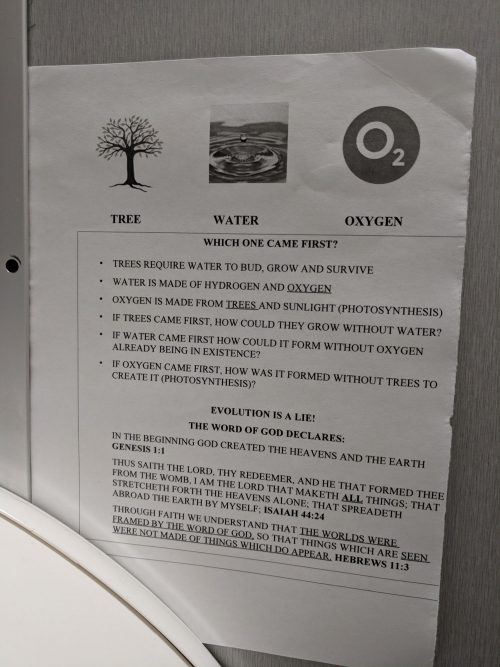The creationists are playing legalistic games again.
Policymakers in the United States are pushing to give the public more power to influence what educators teach students. Last week, Florida’s legislature started considering two related bills that, if enacted, would let residents recommend which instructional materials teachers in their school district use in their classrooms.
The bills build on a law enacted in June 2017, which enables any Florida resident to challenge the textbooks and other educational tools used in their district as being biased or inaccurate. In the five months after the state’s governor approved the law, residents filed at least seven complaints, including two that challenge the teaching of evolution and human-driven climate change, according to the Associated Press.
I have questions.
What do the creationists think this bill accomplishes? They can “challenge” science teachers right now, and they can recommend instructional materials. Go ahead. Disagree with me. Send me Chick tracts and tell me to replace my textbooks with those. You can do that! I’d find it very entertaining. I’d put it in my promotion review file for my colleagues to chortle over, and it would be helpful to me. But otherwise, you can challenge all you want, but I’m just going to ignore you.
What the bill actually does is increase the nuisance value of creationists and create additional costs for Florida schools.
With the law now in place, any county resident — not just any parent with a child in the country’s public schools, as was the case previously — can now file a complaint about instructional materials in the county’s public schools, and the school will now have to appoint a hearing officer to hear the complaint.
This is a law that enables teacher harassment. Nothing else. It’s not going to change the science at all, it’s just going to allow ignorant people to meddle in education — precisely the wrong people to empower.
Now I’d like to know more about this “hearing officer”. If it’s a guy with a wastebasket who sits in a room shuffling complaints to their appropriate destination, that’s just a waste of time and money; if it’s a guy who actually has some power to punish or otherwise affect teachers, then it’s a poison to education.






